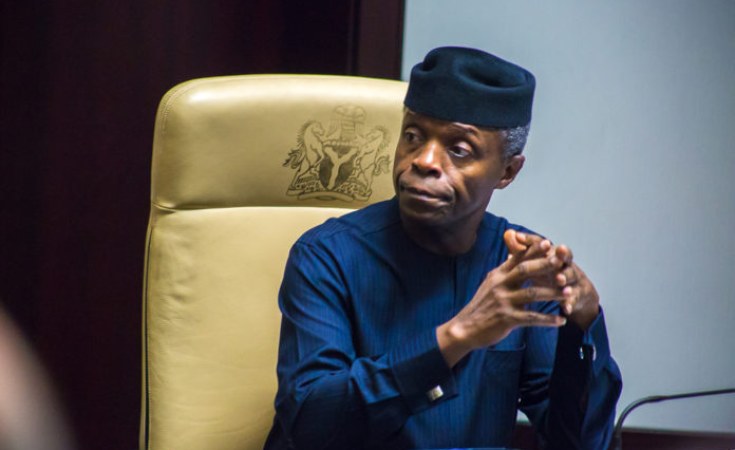Mr Osinbajo says the biggest challenge the country faces is how to protect the youth and the next generation from the moral and ethical crises in the country.
The Vice President, Yemi Osinbajo, has said the prevalence of people with unexplained wealth in Nigeria is fuelling the notion that there is no grave consequence for corruption particularly among the youth.
He said this has also caused the menace of the Yahoo Yahoo "explosion" amongst young people.
Mr Osinbajo made the statement on Tuesday in his remarks at the launch of the 'Integrity Club and Zero Tolerance Club Manuals' at the Model Secondary School, Maitama, Abuja.
The event was organised by the Economic and Financial Crimes Commission (EFCC).
According to Mr Osinbajo, the biggest challenge the country faces is how to protect the youths and the next generation from the moral and ethical crises in the country.
This, he said, has led to a society in which many young people find it difficult to find role models among professionals or even among public servants who can explain how they became wealthy.
He said: "The false notion I described as an ethical crisis and confusion, because there is confusion about what exactly corruption means and what and how it plays out in the lives of people in the nation.
"Then the false notion that we can get away and get ahead by cheating or stealing, whether in public or private life. And I want you to take note that I say that it's a false notion.
"The era of thinking that there will be no consequence for defrauding others, whether it is your employers or whether it is government, or it is cheating in an exam; it's an error to think that there will be no consequences. The reason why many people believe this false notion is that there seems to be many in our society, whose wealth cannot be explained."
Corruption not peculiar to Nigeria alone
The Vice President also said there is nothing peculiar about the current state of corruption facing the country, according to him, many societies across the world have in the past passed through several levels of corruption.
He said what the society did in solving the problem was to take a holistic approach to fighting corruption, and fighting dishonesty.
"Many societies in the world were like us today were we are today. And there is nothing peculiar about Nigeria, or peculiar about Nigeria's corruption. We like to sound as if there's something about us, but there's nothing peculiar.
"They were extremely corrupt. Cheating in examinations, public servants stealing resources, extorting from people you want to get a passport, you have to go and hire a consultant. You want to get your driver's licence, you must pay a bribe, all manner of things. Shop assistant working in a shop must steal the inventory of the shop owner. All of these things are not new.
"They are all the features of a society that begins by believing that it is possible for individuals to enrich themselves by deceit and then everything will be alright. But very soon, societies suddenly discover that is not possible. But eventually the society will collapse.
"That eventually, even those who have stolen the resources of society would have to be accountable for it.
"What these societies did was to take an all of society approach to fighting corruption, and fighting dishonesty."
Children to be familiar with issues of financial crimes
On his part, Mr Bawa said it was important for school children to get familiar with issues concerning economic and financial crimes.
"The manuals for the integrity club, according to the EFCC boss would not only instill a culture of integrity in young people and children, but also make them aware of the importance of being honest, open, and accountable in all of their transactions.
"The choice of school children and youths as torch-bearers in this important crusade is informed by the fact that they are not easily vulnerable to the effects of economic and financial crimes but retain the potential of breaking with the past years of decadence, to deliver the much cherished destiny of our nation as a corrupt-free society."
He said the commission had designed programmes and activities aimed at nurturing a culture of integrity in the formative years of this young population.
"Two of such programmes are the EFCC Integrity Club for primary schools and the Zero Tolerance Club for tertiary institutions.
"The Clubs are designed not only to improve children and youth understanding and sensitivity to the issues of economic and financial crimes but as a deliberate intervention to imbue them with values which underpin integrity, honesty, transparency and accountability to influence their behavior and character formation," Mr Bawa said.
He also urged collaboration with State Education Boards by encouraging the formation of EFCC integrity clubs in every school under their control.


